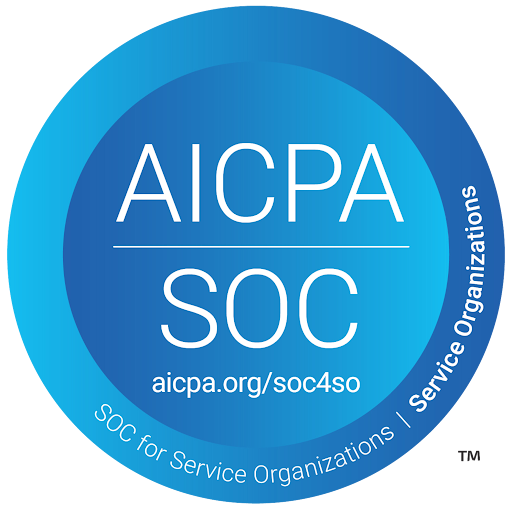As we age, we may start to worry about our cognitive health. We want to stay sharp and focused, but the risk of cognitive decline and dementia looms large. Luckily, there are steps we can take to help protect our brains, and one of them is through our diet. In this blog post, we’ll explore the MIND diet, a scientifically-proven approach to promoting brain health and reducing the risk of cognitive decline and dementia.
What is the MIND Diet?
The MIND diet is a combination of two popular diets: the Mediterranean diet and the DASH (Dietary Approaches to Stop Hypertension) diet. MIND stands for “Mediterranean-DASH Intervention for Neurodegenerative Delay.” The diet was developed by researchers at Rush University Medical Center in Chicago, who wanted to find out if specific foods could help protect against cognitive decline.
The MIND diet focuses on foods that are high in nutrients that have been shown to be beneficial for brain health, while also avoiding foods that have been linked to cognitive decline. The diet is not overly restrictive and can be easily adapted to personal preferences and dietary restrictions.
Research on the MIND Diet
Several studies have shown that the MIND diet can help reduce the risk of cognitive decline and dementia. One study found that following the MIND diet could reduce the risk of developing Alzheimer’s disease by up to 53%. Another study found that the diet could slow the progression of cognitive decline in those who already had mild cognitive impairment.
Foods to Eat on the MIND Diet
The MIND diet emphasizes eating plenty of fruits, vegetables, whole grains, nuts, beans, and lean proteins. Specific foods that are considered to be especially beneficial for brain health include:
- Leafy green vegetables, such as spinach, kale, and collard greens
- Berries, such as blueberries and strawberries
- Whole grains, such as brown rice, quinoa, and whole-wheat bread
- Nuts and seeds, such as almonds, walnuts, and flaxseeds
- Beans and legumes, such as lentils and chickpeas
- Fish, such as salmon and tuna
- Poultry, such as chicken and turkey
The MIND diet also suggests avoiding foods that are linked to cognitive decline. These include:
- Red meat
- Fried and fast food
- Butter and margarine
- Cheese
- Pastries and sweets
- High-fat dairy products
Adhering to the MIND diet, even moderately, has been shown to have several benefits for brain health. Some of these benefits include:
- Reducing the risk of cognitive decline and dementia
- Slowing the progression of cognitive decline in those who already have mild cognitive impairment
- Improving memory and cognitive function
- Lowering the risk of chronic diseases, such as heart disease and diabetes
Sample Meals and Snacks for the MIND Diet
Here are some sample meals and snacks that are consistent with the MIND diet:
- Breakfast: Oatmeal with blueberries and almonds
- Snack: Carrots with hummus
- Lunch: Spinach salad with grilled chicken, walnuts, and a vinaigrette dressing
- Snack: Apple slices with almond butter
- Dinner: Grilled salmon with brown rice and steamed broccoli
- Dessert: Greek yogurt with nuts
Incorporating the MIND diet into your daily routine may seem daunting at first, but the benefits are clear. With the potential to reduce your risk of cognitive decline and improve brain function, this is a dietary lifestyle worth considering. Plus, it doesn’t mean giving up all of your favorite foods. So go ahead, enjoy a piece of dark chocolate or a glass of red wine (in moderation, of course!) while savoring a delicious MIND diet-approved meal. And if you need help getting started or have any questions, don’t hesitate to make an appointment with one of our expert doctors at Isaac Health. We’re here to help you live your healthiest, happiest life!
Sources
- Morris, M. C., Tangney, C. C., Wang, Y., Sacks, F. M., Barnes, L. L., Bennett, D. A., & Aggarwal, N. T. (2015). MIND diet associated with reduced incidence of Alzheimer’s disease. Alzheimer’s & Dementia: The Journal of the Alzheimer’s Association, 11(9), 1007-1014. https://doi.org/10.1016/j.jalz.2014.11.009
- Morris, M. C., Tangney, C. C., Wang, Y., Sacks, F. M., Barnes, L. L., Bennett, D. A., & Aggarwal, N. T. (2015). MIND diet slows cognitive decline with aging. Alzheimer’s & Dementia: The Journal of the Alzheimer’s Association, 11(9), 1015-1022. https://doi.org/10.1016/j.jalz.2015.04.011
- The MIND Diet. (n.d.). Rush University Medical Center. Retrieved March 4, 2023, from https://www.rush.edu/news/press-releases/mediterranean-dash-diet-may-significantly-reduce-risk-developing-alzheimers-disease
- Mediterranean-DASH Intervention for Neurodegenerative Delay (MIND) Diet. (n.d.). National Institute on Aging. Retrieved March 4, 2023, from https://www.nia.nih.gov/health/mediterranean-dash-intervention-neurodegenerative-delay-mind-diet
- The MIND Diet: A Scientific Approach to Enhancing Brain Function and Helping Prevent Alzheimer’s and Dementia. (n.d.). Healthy Aging Program, University of Pittsburgh. Retrieved March 4, 2023, from https://www.healthyaging.pitt.edu/story/121
- MIND Diet: What To Know, Meal Plan, And Recipes. (2022, November 10). Cleveland Clinic. Retrieved March 4, 2023, from https://my.clevelandclinic.org/health/articles/15970-mind-diet
- The MIND Diet. (n.d.). Alzheimer’s Association. Retrieved March 4, 2023, from https://www.alz.org/media/Documents/MIND-Diet.pdf
- Foods to Boost Brainpower: Berries, Whole Grains, and More. (n.d.). Harvard Health Publishing, Harvard Medical School. Retrieved March 4, 2023, from https://www.health.harvard.edu/mind-and-mood/foods-linked-to-better-brainpower








